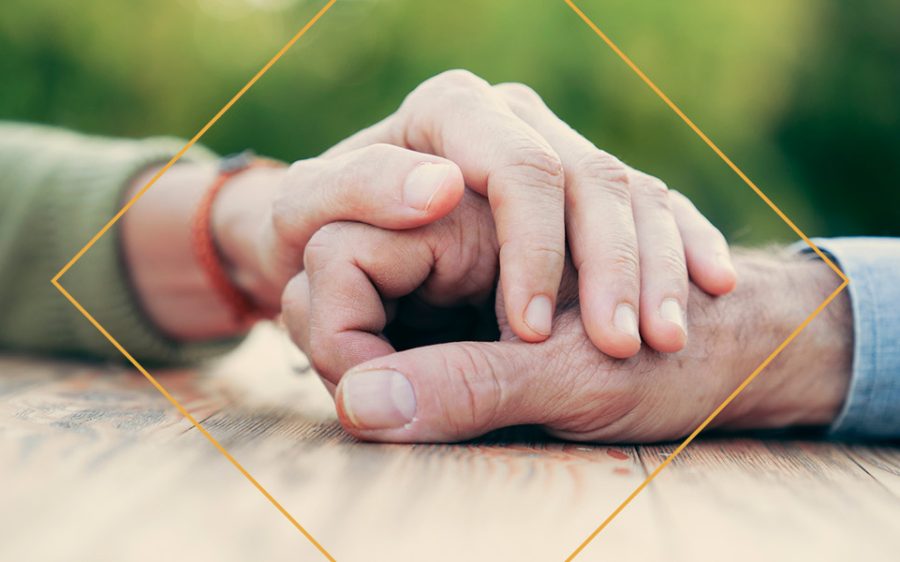
Post-traumatic stress disorder (PTSD) can make it challenging to get through daily life. You may deal with frequent, intense anxiety that interferes with work, school and other obligations. These strong feelings can cause people to turn to unhealthy coping methods, like self-harm or drug or alcohol use. Fortunately, there are several methods you can use to help ease anxiety and other PTSD symptoms. Comprehensive support and evidence-based treatments can also help you overcome the condition and lead a fulfilling life.
PTSD typically occurs after experiencing or witnessing a traumatic event. It is characterized by negative changes in one's outlook and mood as well as changes in how you react emotionally and physically. Intrusive memories and flashbacks are also common. Symptoms can vary from person to person, though common ones include:
These symptoms can lead to increased anxiety, making it challenging for people with PTSD to have trouble functioning in everyday life. They can also co-occur with symptoms of depression, impacting a person's well-being.
It's important to identify the triggers or the people, places and situations that might activate your PTSD symptoms. Recognizing your triggers can help you build healthy coping mechanisms to ease anxiety symptoms in that moment. It's also critical to see a mental health professional who can provide a treatment plan for PTSD to improve your wellness.
Relaxation techniques like deep breathing and progressive muscle relaxation may help you reduce stress to stop a PTSD attack. Progressive muscle relaxation involves tightening and then relaxing muscle groups throughout the body. The goal is to achieve total muscle relaxation by first going to the extreme — tensing the muscles.
Breathing also plays a critical role in stress response. To breathe properly and avoid anxiety, you'll need to practice natural breathing, which involves the diaphragm, or the large muscle in your abdomen. Your belly should expand when you breathe in and fall when you breathe out. Avoid breathing with your chest and shoulders, which can cause short breaths and increase anxiety and stress.
Identify your PTSD triggers through self-monitoring. The technique involves carefully observing and recording specific thoughts, feelings, sensations and behaviors throughout your day. By slowing down and taking note of your reactions, you can predict uncomfortable feelings and manage them more easily.
The more you learn about yourself and your day-to-day reactions, the better equipped you'll be to overcome PTSD triggers and improve your well-being.
Social support is often a vital part of PTSD recovery. Having someone you can turn to in stressful situations can go a long way in managing anxiety and improving your well-being, whether you turn to a friend, family member or another trusted person in your life. Support groups led by professionals can also be helpful, as they put you in touch with those who share similar experiences, symptoms and feelings as you do.
These supportive connections can be immensely beneficial, as you can gain a sense of encouragement, advice and strength to cope with PTSD — which can be liberating and comfortable.
When you are experiencing anxiety, it's important to have coping skills for these difficult feelings. While social support may not always be available when anxiety strikes, self-soothing tactics can help you reduce symptoms and improve your mood in the moment. Self-care coping strategies that can calm the body include:
While you cannot change what happened in the past or directly influence future events, you have the ability to make the changes in the present moment to help regulate yourself. Self-soothing is a powerful tool to have when you're dealing with post-trauma stress and need help focusing on the present moment. You might also try distraction activities like listening to music, aromatherapy, journaling and exercise.
For instance, taking a warm bath with Epsom salt may help relax muscles and reduce stress to help you center yourself. And, of course, exercise is vital for our health on numerous levels and has been shown to reduce PTSD symptoms and improve sleep and mood.
Though it's important to have numerous coping skills for PTSD to bring relief, the most effective way to reduce symptoms is through evidence-based, professional support. Mental health professionals can diagnose and provide a treatment plan for PTSD that matches your unique experience and needs. The following treatments may help you identify triggers, process trauma healthily and return to a meaningful life:
Talk therapy can help you process your trauma without having to relive the discomfort that occurred during the experience. The goal is to separate trauma from painful emotions so you can live a life free of intrusive flashbacks, nightmares or fear. Holistic approaches like mindfulness, yoga, deep breathing, music, exercise and art therapy can also be beneficial.
At Diamond House, our goal is to provide individualized treatment for your unique needs and goals. Our compassionate, experienced treatment providers understand that there isn't a one-size-fits-all approach to mental health care. We will develop a treatment plan for PTSD that uses evidence-based approaches like CBT, EMDR, DBT and holistic modalities.
We have helped numerous clients achieve wellness, and look forward to supporting your journey toward a full, meaningful life. Consider our testimonials to learn how our PTSD treatment plans may make a difference in your life.
While complex, PTSD is a treatable condition. With the right coping skills, you can learn to reduce symptoms and live a more meaningful, happy life. At Diamond House, we offer comprehensive PTSD treatments for anyone struggling with trauma. Our medical professionals will assess your exact situation and develop a plan with evidence-based psychotherapy and holistic approaches.
Every situation and background is unique, and we aim to provide a comfortable, personalized approach to help you regain control of your symptoms and feel better. To learn more about our PTSD treatments, contact us today.